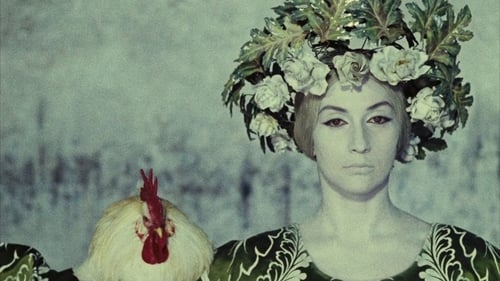
Miranda
Elene is an 80-year-old writer who lives with her family, forced to stay home due to health conditions. Her comfort is cracked when her daughter's mother-in-law, Miranda, a former Soviet official, moves into the apartment, and Elene receives an unexpected call from an old love interest, Archil.

Mariam
Set in 1937 Stalinist Georgia, the film traces the parallel destinies of a mother, condemned by the government as "an enemy of the people" and exiled to a work camp in Siberia, and her daughter, who meanwhile is sent to an orphanage. Arriving at the overcrowded work camp, the mother and other women who are not considered strong enough to be labourers, must journey still farther, crossing the icy Siberian landscape in search of food and shelter. At the same time, the daughter escapes the orphanage and returns to her former home, where she finds that a KGB officer has taken up residence. He protects her and an uneasy rapport between them develops—one of abhorrence and attraction, need and suspicion.

Laura
Full Circle. Whirlwind.

A cult of diners, restaurants and an excessive eating prevails in the City of Joy. Different contests are held in cooking the Georgian cuisine. Makro, a famous singer, decides to lend some spirituality to the city of gluttons. For that purpose she decides to set up a gallery of beautiful paintings in one of the city’s restaurants. The owners of the restaurant oppose that decision, but due to Makro’s agility the tenants of the city carry the paintings to the new museum.

Wife of Platon
Vakhtang is talented artist but family liabilities don't allow him to work seriously. His wife Eka takes advantage of husband's trip out of town and exchanges her flat for a house in a colorful old city and sets up the artist's studio.

The life of the revered 18th-century Armenian poet and musician Sayat-Nova. Portraying events in the life of the artist from childhood up to his death, the movie addresses in particular his relationships with women, including his muse. The production tells Sayat-Nova's dramatic story by using both his poems and largely still camerawork, creating a work hailed as revolutionary by Mikhail Vartanov.

Matrona
In Georgia during WWII Zurikela, an orphan boy, meets Khatia, a blind girl, and vows to help her to see again.




